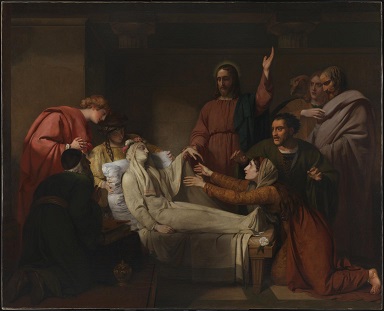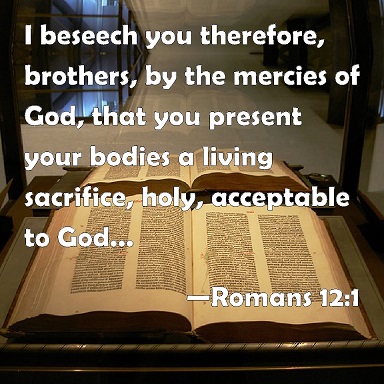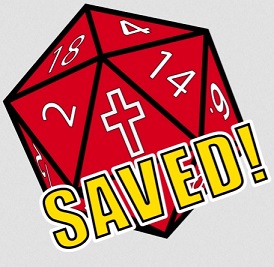This is mark Joseph “young” blog entry #477, on the subject of The Song “Step by Step”.
This is undoubtedly the longest song yet published, and I do not anticipate posting a longer one. Yet it is a good old-style rock song with an interesting story behind it. The dramatic opening moves into the slow pounding forward movement which eventually segues through gentle voices into the frantic cadenza building to a climax that brings it back to the beginning, and a denouement capturing the first part as the last.
Part of that story was already told in web log post #462: John Three (linked below). There I tell about how Jeffrey Robert Zurheide and I started writing a rock opera. This song is primarily sung by the commander of the soldiers who nailed Jesus to the cross, although there are parts (in very operatic style) attributed to John the Baptist and the Prophets and to The Church. It also contains several instrumental stretches including a drum solo, although this recording is another vocals over midi instruments work. Although I wrote it alone, I incorporated scraps of melody from at least one piece that Jeffrey had written, the Carpenter’s Song melody at the end.
My impetus for recording it was that a paper copy of the lyrics with chords would not preserve the intricacy at all. When I originally wrote it, at Gordon College probably in the spring of 1976, I recorded it in my dorm room using a Sony reel-to-reel deck that let me record one channel while playing the other, but that tape had been lost, so having the software to do so I reproduced it. I have often thought that the second half of the section given to the Voice of the Church should break into SATB, but I’ve never taken the time to draft that.
It has a lot of excellent images, although at least one part I always liked turns out to be historically inaccurate (they did not drop crosses into sockets; they nailed criminals to the crossbar and hoisted it onto the scaffold, then affixed the feet). But the picture of the steps throbbing in the brain of the soldier, the phrase “Jesus walked to the cross” suggesting that it was voluntary, and the notion of the earthquake waiting for Him to nod His head as a cue, have always struck me as gems. (I had probably heard the notion that walking to the cross was voluntary before this, but it was worth including.)
When I played it for Jeff, he was thrown at the end, because when I sang “Today we killed a carpenter” he thought it was the carpenter he’d invented at the beginning who, in fairness, I’d brought back into the story in the song sung by Caiaphas. I thought that connecting the carpenters together gave some cohesion to the song.
Step by Step.
So here are the lyrics.
(John the Baptist and the Prophets)
Behold the Lamb of God, who takes away the sin of the world.
(Soldier)
Step by step He walked to the hill.
His shredded back was bleeding still.
Step by step He carried the cross;
I felt so helpless, so blind, so lost.Step by step He plodded along,
This man in whom we found nothing wrong.
Step by step He came to die.
I had the feeling only He knew why.Somehow I think He died for me;
Can’t you see, He took my place?
I should have been nailed to that tree;
Instead, I spit in His face.Somehow I think He died for me;
Can’t you see, He took my place?
I should have been nailed to that tree;
Instead, I spit in His face.Step by step–it stays with me yet.
This was a man like none I had met.
Step by step, it throbs in my brain.
How could this man bear so much pain?(Voice of the Church)
And Jesus walked to the cross–
He didn’t have to do it,
But He thought of me
As He faced that tree,
And for my life He went through it.
Jesus walked to the cross–
One little word would have saved Him,
But His love was why
Jesus chose to die.
The cross was mine, but He gave Himself for me.He died for me. (Repeat and under)
(Soldier)
Somehow I think He died for me;
Can’t you see, He took my place?
I should have been nailed to that tree;
Instead, I spit in His face.
I felt so guilty as I watched Him walk along,
And He was still alive–He must have been remarkably strong,
But any minute I was sure that He would fall–
We beat Him so hard, I’m surprised He walked at all–
And so I grabbed a man who stood beside the road
And made him carry Jesus’ awful, awful, awful load,
And made him carry Jesus’ awful load, but what can I say?
I thought I was the one who should have led the way
To take the cross, to die myself, to set Him free,
To bear the cross on which this Jesus died for me.
The cross He bore–I felt it was my own,
But one man just can’t stand alone
Against the people and against the rulers at the top
And tell them all they’re wrong, tell them to stop, stop, stop, stop, stop–Stop this madness, stop this madness,
Can’t you see you’re plunging us in darkness and sadness?
But still we nailed Him to the cross, and dropped it in the socket,
And grumbled that His garment didn’t have a pocket;
But I did give Him a drink before He died.
When He was dead, I plunged my sword in his side,
I don’t know why–somehow I knew that He was dead.
When He died, He prayed, then He dropped His head,
Then came the earthquake, yes, it seems it waited for His nod.
Surely this man had to be the Son of God.
Oh, tell me Jesus, tell me, please tell me why,
Why did we hate you, why did we beat you, why did we crucify?(John the Baptist and the Prophets)
Behold the Lamb of God, who takes away the sin of the world.
(Soldier)
Today we killed a carpenter–I guess I don’t know why.
Can someone tell me why this Jesus had to die?
He’d been a nuisance, and we’d fin’ly had enough.
But for a righteous man, we sure did treat Him rough.
We bit and spit on Him, we acted just like swine,
And yet it seemed that He forgave us for our crime.
I meant to ask Him to explain some things He’d said.
I’m kind of sorry that the carpenter is dead.(All)
Step by step.
*****
Previous web log song posts:
#301: The Song “Holocaust” | #307: The Song “Time Bomb” | #311: The Song “Passing Through the Portal” | #314: The Song “Walkin’ In the Woods” | #317: The Song “That’s When I’ll Believe” | #320: The Song “Free” | #322: The Song “Voices” | #326: The Song “Mountain, Mountain” | #328: The Song “Still Small Voice” | #334: The Song “Convinced” | #337: The Song “Selfish Love” | #340: The Song “A Man Like Paul” | #341: The Song “Joined Together” | #346: The Song “If We Don’t Tell Them” | #349: The Song “I Can’t Resist You’re Love” | #353: The Song “I Use to Think” | #356: The Song “God Said It Is Good” | #362: The Song “My Life to You” | #366: The Song “Sometimes” | #372: The Song “Heavenly Kingdom” | #378: The Song “A Song of Joy” | #382: The Song “Not Going to Notice” | #387: The Song “Our God Is Good” | #393: The Song “Why” | #399: The Song “Look Around You” | #404: The Song “Love’s the Only Command” | #408: The Song “Given You My Name” | #412: The Song “When I Think” | #414: The Song “You Should Have Thanked Me” | #428: The Song “To the Victor” | #433: The Song “From Job” | #436: The Song “Trust Him Again” | #438: The Song “Even You” | #441: The Song “Fork in the Road” | #442: The Song “Call to Worship” | #445: The Song “How Many Times” | #447: The Song “When I Was Lonely” | #450: The Song “Rainy Days” | #453: The Song “Never Alone” | #455: The Song “King of Glory” | #457: The Song “Greater Love” | #458: The Song “All I Need” | #462: The Song “John Three” | #464: The Song “The Secret” | #466: The Song “In a Mirror Dimly” | #468: The Song “Present Your Bodies” | #471: The Song “Walkin'” | #473: The Song “In the Light of His Love”
Next song: They That Trust









